- Overview
- Trip Outline
- Trip Inclusions
- Trip Exclusions
- Gallery
- Reviews
- Book Now
- FAQ
Why DIY treks?
Trekking in India has gained a lot of popularity in the past few years. Every year, thousands of trekkers flock the Himalayan treks. Very often, adventure seekers find themselves wanting more from the trek, in terms of physical challenge, learning outdoor skills like basic first aid, navigation, camping etiquettes, gear planning, etc. This program is planned for such serious trekkers who want to push their limits and trek in a self-sustained manner.
In this trek hikers have to haul their own weight including sleeping bags, mats, tents (1 shared by 2 participants), rations and cooking utensils. Your backpack will weigh approximately 15 kgs.
The Talley Valley trek
The Talle Valley Trek takes you through three distinct valleys and along two rivers, ultimately leading to the heart of Ziro in Arunachal Pradesh. Ziro Valley, famous for its picturesque landscape, is home to the indigenous Apatani tribe and hosts the renowned Ziro Music Festival every year. This valley has earned UNESCO's recommendation for World Heritage status due to the remarkable ways its people conserve their environment. Surrounded by lush forests and vast stretches of paddy fields, Ziro Valley's beauty is truly awe-inspiring.
Known as the land of ancient tribes, the trek offers a glimpse into the unique cultures of the region. As you journey through dense forests, expansive green meadows, and fields dotted with ferns and white bamboo, you’ll experience a diversity of flora and fauna unlike anywhere else. Over the course of this 6-day trek, you’ll immerse yourself in both the natural beauty and the rich cultural heritage of the area, making it an unforgettable experience.
Topics covered
- Gear Planning
- Outdoor Cooking
- Navigation Skills
- Risk Management
- Basic First Aid
- Leave No Trace
- Camping Etiquette
- Mountain Sickness
Gear provided
- Tents
- Sleeping bags
- Sleeping mats
- Cooking rations
- Cooking utensils
- Stove with fuel
Day 1 - Arrival in Ziro Valley.
- Guests can arrive through the day. Check into a hotel/homestay.
- Evening Session – Introduction & gear allocation. Overnight stay in Homestay.
Day 2 – Sessions begin
- Morning - How to Plan and Prepare for a trek - Ration distribution, Stove usage demo, Tent pitching demo, Backpack packing.
- Overnight stay in Homestay.
Day 3- Drive to trail head, Trek from Mani Polyang to Pange Valley.
- Altitude: 1700 mts to 1890 mts. Time taken: 5 hrs, 9 km
- Trek gradient: Easy. The trail has gradual ascents & descents throughout. A few sections through the forest, around 2 hrs into the trek, are steep but short.
Day 4 –Trek from Pange Valley to Talle Valley
- Altitude: 1890 mts. to 2470 mts via a section at 2745 mts, which is the highest point of this trek. Time taken: 7 hours, 10 km
- Trek gradient: Moderate. Begin with a mostly level walk for an hour followed by a steep ascent for about 3 hrs to culminate in a descending trail.
Day 5 - Trek from Talle Valley to Pange Valley River Camp
- Altitude: 2745 mts to 1600 mts. Time taken: 7 hrs, 10 km
- Trek gradient: Moderate. The initial gradual descent gives way to steeper descents within 10 minutes of trekking.
Day 6 - Trek from Pange Valley river camp to Hong village and drive back to Ziro.
- Altitude: 1600 mts to 1970 mts Time taken: 5 hrs, 7 km
- Trek gradient: Easy – moderate. A gradual ascent in the beginning is followed by a gradual descent for a couple of hours. The trail is not defined very well so one needs to make a path through the forest. Ensure you stay with the group.
- Drive distance – 25 mins. Check into hotel/homestay
- Gear returning and Gear cleaning post return.
- Debriefing session in the evening. Overnight in Homestay
Day 7 - Check out after breakfast
- Camping gear - Sleeping bags, tents, mats, stove, butane canisters.
- Transport during the duration of the program.
- Hotel stay and food in Ziro.
- 5% GST
- Transport to Ziro and back
- Any item purchased for separately by the participants
- Additional personal trekking gear like Shoes, Trek poles, Trek clothing etc.
- Staff Tips
It is mandatory for the trekkers on this program to carry their own trekking bags along with their tents, sleeping bags, cooking materials, and ration. The trekkers are expected to have good endurance and fitness levels to be a part of this program. If we find a trekker unfit, we reserve the right to deny the trekker’s participation for this program.
A certified trek leader and a guide will accompany you during the trek.
You can prepare for the trek with a combination of Cardio & Strength activities
4-5 kms slow jog OR 6-7 kms Brisk walking OR 25 kms cycling. Pace is not important, consistency is important (non-stop jogging/running/cycling)
Squats 20 x 3, Lunges 20 x 3, Calf raises 20 x 3
All of the above at least 4 times a week
Climbing stairs 40 floors with backpack (At least once a week)
- Good Sturdy Backpack: Prefer a trekking pack over a backpacking one. A 60- 70 litre pack should suffice.
- Trekking Shoes: Any Waterproof trek (not hike) shoes would be ideal.
- Socks: 2 pair cottons and 2 pairs of woolens.
- Trek pants (Ideally Water Resistant): They are very important and help you a great deal on your trek. You can get two quick dry summer trek pants if you don’t have a trek pants, you can replace it with Gym Track pants. Don’t trek in Jeans/Pants.
- T shirt/ Base layer: One can get 2 T shirts/trekking base layer on the trek, one of which can be full sleeves. Avoid cotton and prefer dry fit.
- Down/ Padded Jacket: Not required. 1 fleece jacket & 1 rain jacket should be enough.
- Thermals: 1 pair. We wear thermals only upon reaching the campsite not while trekking.
- Rainwear:
Option A - Rain set - One Waterproof jacket (3000 mm waterproofing), Rain proof pants and Bag cover
Option B – Poncho - Covers your body and bag completely. We recommend Option A as poncho makes trekking difficult.
- Windproof Jacket: Not needed
- Woolen Cap/ Balaclava (1): To cover your ears, head and neck. Get one woolen cap and one neck warmer or balaclava.
- Neck Warmer/ Scarf : Not required.
- Gloves : 1 thin pair is enough
- Suncap & Sunglasses: 1 each
- Toiletries: Also include sunscreen, moisturizer and lip-cream
- Headlamp/Torch: 1. Preferably head lamp.
- 1 water bottle (1 litre): Capable of holding hot water
- One hydration pack: 1 litre
- Camp shoes/Flip flops for camp
- Plastic covers for inside the backpack to keep your clothes dry
- Daypack: 20L
- Documents: 2 passport sized photograph, Address and Photo proof (Driving License or Aadhaar card)
- Doctor’s Medical certificate saying that you are fit for the trek. We reserve the right to not take you on the trek if you fail to produce this.
You will be sleeping in twos or threes in your tents in sleeping bags. The sleeping bags are snug and comfortable. We will be providing inflatable pillows.
The common perception is that alcohol makes you feel warmer, however it also dehydrates you & dehydration can be fatal while trekking. Hence consumption of alcohol is prohibited. Smoking in camps is not allowed.
We’ve been organizing treks for over five years and have had many female trekkers trek with us. In fact, a lot of them come solo for treks. There has never been a complaint about the atmosphere of a trek, about other trekkers or our professionalism. They have all been kind enough to leave a review.
No. Guests are expected to carry their own power banks.
In all the camps where the accommodation is in tea houses/ home stays, there will be proper toilets. The toilets are mostly western, in case if they‘re Indian, then we try to provide a toilet seat most of the times.
On the day of camping, we will have toilet tents (with a dry pit toilet), the most hygienic way of answering nature’s call.
A dry pit toilet is an eco-friendly sanitation solution featuring a pit dug into the ground, topped with a toilet seat and a wrought iron stand. Near the toilet, a pile of mud, sand, or coco peat is provided for covering waste after use, facilitating rapid breakdown of fecal matter due to increased microbial activity. This method eliminates the need for water, thereby preventing contamination of nearby water sources, as water toilets are prohibited at campsites.
While toilet paper is available, please use it sparingly to avoid overloading the pit, which can take years to decompose. Please refrain from using wet wipes as they are not biodegradable or use biodegradable wipes.
Through the trek, there are no bathing facilities at campsites. Trekkers often take advantage of running streams to freshen themselves up.
Most wild animals are naturally wary of human activity and prefer to stay in more remote, quieter parts of their habitat. Here’s why wild animals typically do not approach camps.
If you cancel –
– 60 days before the trip: we can process a complete refund minus minimum processing charges.
– Between 30-45 days before the trip: you will be refunded 50% of the trek fee.
– Within 30 days before the trek starts: No refund.
– If your spot is replaced in a full batch: we will process a complete refund after canceling minute operational charges. (For fixed departures only)
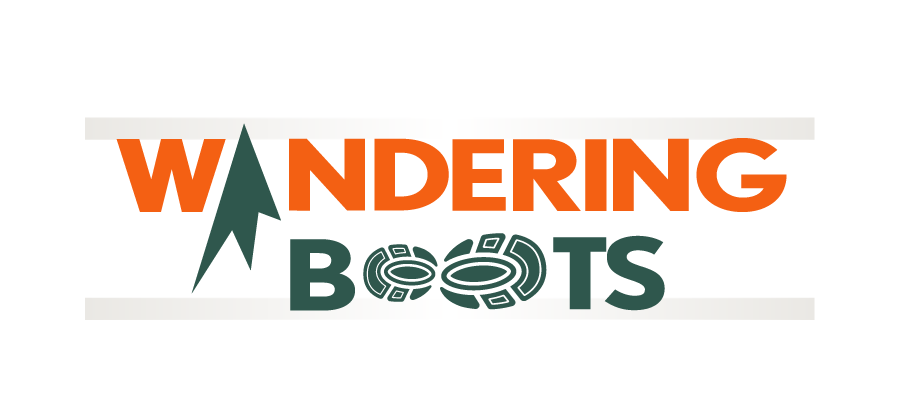

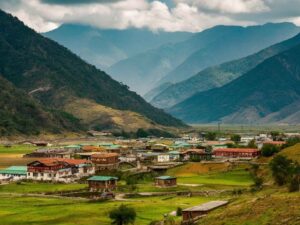

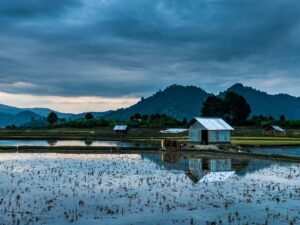
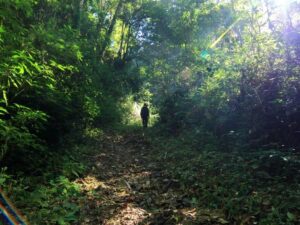

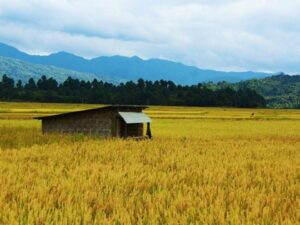
There are no reviews yet.